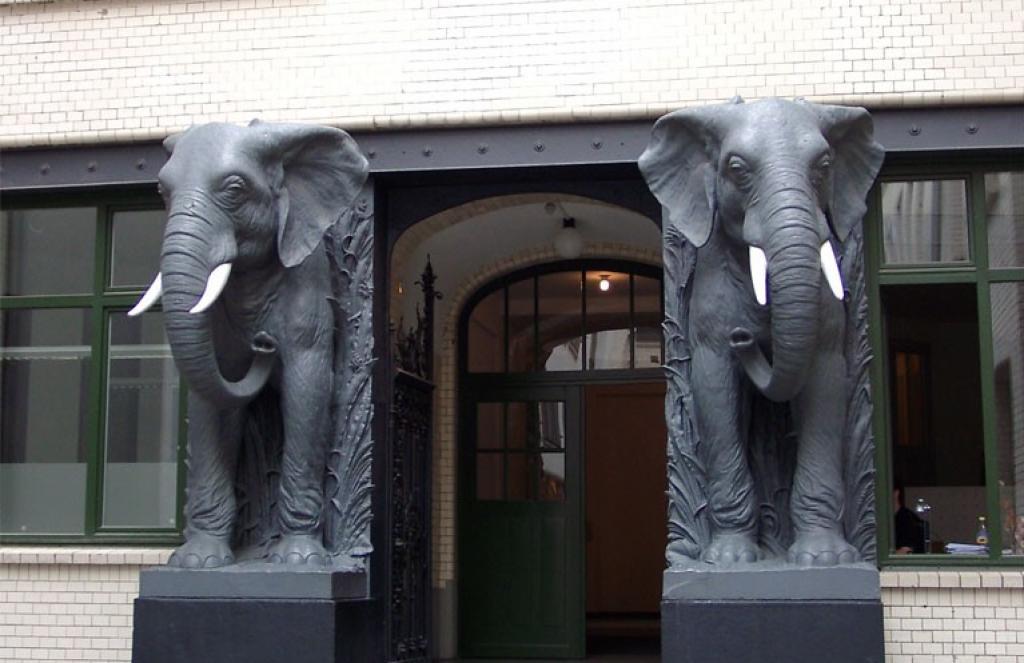Thessaloniki gets ready for its metro launch in November
The underground rapid transit lines have been under construction for almost two decades due to various project delays
 TheMayor.EU logo
TheMayor.EU logo 
The back entrance to the Afrikahaus - a commercial building in Hamburg baring all the hallmarks of late colonialism, Source: KMJ on WIkipedia, CC BY-SA 3.0
The app is based on the book “Hamburg: Germany's gateway to the colonial world”
Last week, Hamburg announced the launch of a new app, which promises to untangle the city’s colonial past. The app was developed by a team at the city’s Research Centre for (post-)Colonial Heritage (Forschungsstelle Hamburgs (post-)koloniales Erbe). It was based on the book Hamburg: Germany's gateway to the colonial world (Hamburg: Deutschlands Tor zur kolonialen Welt).
The app aims to make the city’s colonial history accessible for both visitors and locals offering a tour of notable locations with background history on Hamburg’s heritage and participation in the theft and trade of African artefacts.
Although Germany is famous for its transparent efforts to rectify the mistakes of Nazism from the 20th century, colonialism remains a more obscure topic. Katharina Fegebank, Science Senator, was quoted in a press statement explaining that the app helped to make this chapter of German history more visible.
Researchers from the Centre for (post-)Colonial Heritage claim that the Hanseatic City of Hamburg was the premier point of entry and exit for colonial artefacts during the 18th and 19th centuries for the whole of Germany.
During this period, many colonial powers traded looted artefacts from their overseas colonies in the port of Hamburg and many people who lived in the area became immensely rich. Moreover, it was the main point of launching German colonial expeditions.
Even today, the city hosts a clothing shop near the port called Ernst Brendler, founded in 1879, which still sells tropical and marine outfits commonplace in expeditions during the period. Moreover, around 179 artefacts originating from the kingdom of Benin used to be housed in Hamburg’s ethnological museum.
More than 100 of those were part of the Benin Bronzes – a famous art installation depicting the history of the kingdom of Benin dated from around the 16th century. Most of the plaques were taken during a British Expedition in 1897 and sold around the world, with the collection primarily located in the British Museum, with notable exceptions in Hamburg and the US.
The Benin Bronzes are a very prominent example of the brutality of colonialism, as they stored the entire history of the Benin people (today living in Edo State in Nigeria). Colonial forces robbed a culture of its roots by demolishing the original palace where they were displayed and scattering them in the world.
Notably, the Hamburg Ethnological Museum decided to return its collection in 2021, along with many institutions in Germany and the United Kingdom, with the notable exception of the British Museum.

The underground rapid transit lines have been under construction for almost two decades due to various project delays

Now you can get your wine in Talence by paying directly in Bitcoin

That’s because the state has to spend money on updating the railway infrastructure rather than subsidizing the cost of the popular pass

Rethinking renewable energy sources for the urban landscape

The examples, compiled by Beyond Fossil Fuels, can inform and inspire communities and entrepreneurs that still feel trepidation at the prospect of energy transition

Now you can get your wine in Talence by paying directly in Bitcoin

The 10th European Conference on Sustainable Cities and Towns (ESCT) sets the stage for stronger cooperation between the EU, national and local level to fast track Europe's transition to climate neutrality.

At least, that’s the promise made by the mayor of Paris, Anne Hidalgo

The underground rapid transit lines have been under construction for almost two decades due to various project delays

At least, that’s the promise made by the mayor of Paris, Anne Hidalgo

Hostal de Pinós is located in the geographical centre of the autonomous region

Despite its church-y name, the district has long been known as the hangout spot for the artsy crowds

Urban dwellers across the EU are having a say in making their surroundings friendlier to people and the environment.

Forests in the EU can help green the European construction industry and bolster a continent-wide push for architectural improvements.

Apply by 10 November and do your part for the transformation of European public spaces

An interview with the Mayor of a Polish city that seeks to reinvent itself

An interview with the newly elected ICLEI President and Mayor of Malmö

A conversation with the Mayor of Lisbon about the spirit and dimensions of innovation present in the Portuguese capital














